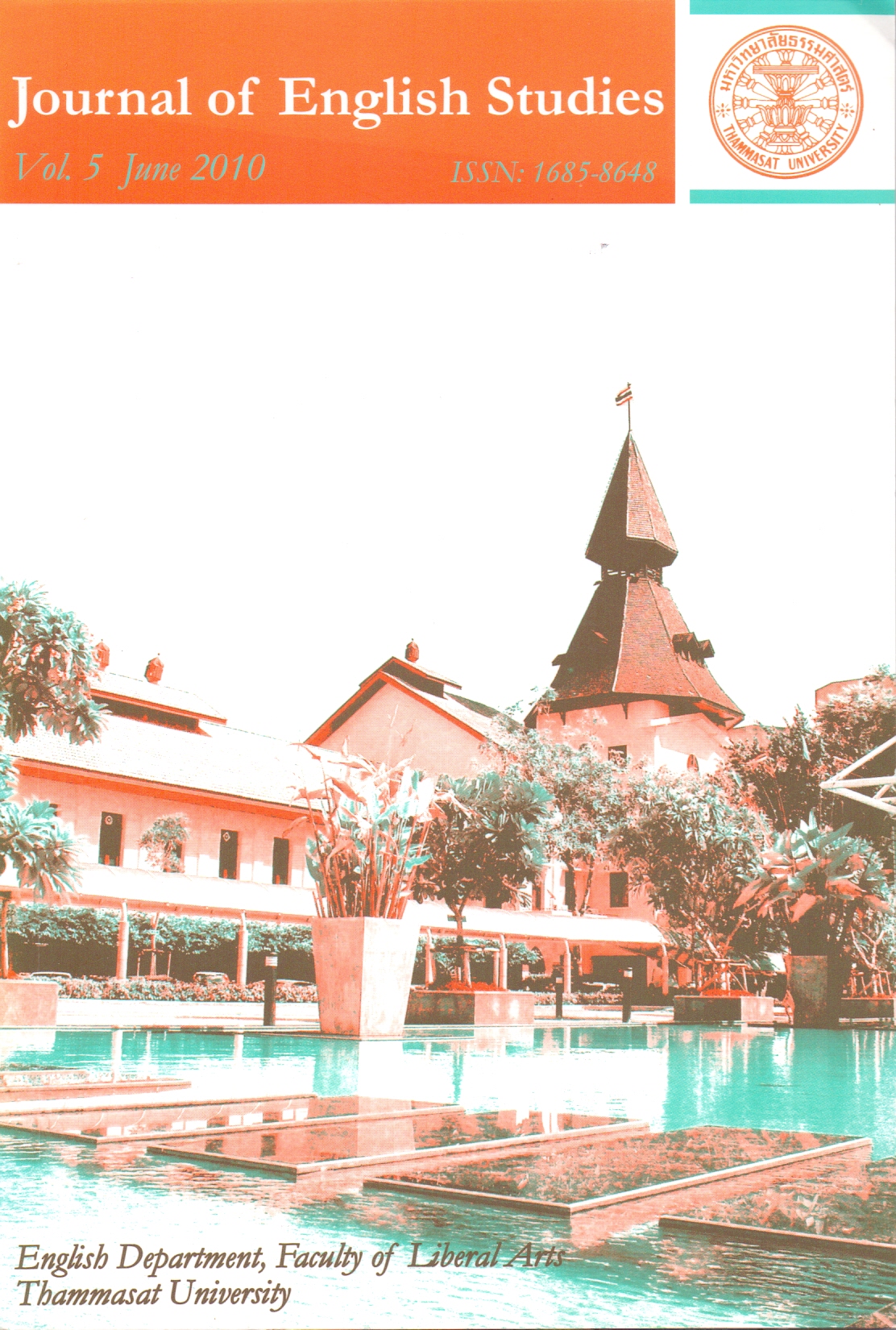Note from the Editor
Main Article Content
Abstract
We are pleased that the publication of this issue of the Journal of English Studies coincides with the seminar between the English Departments of Chulalongkorn and Thammasat Universities. Some of the papers presented at the seminar are published in this issue. Our Journal of English Studies prides itself in contributing to the academic and intellectual discussions and in presenting academic papers of high-quality. To achieve this aim, our editorial board with new members from leading universities in Thailand does its very best. All articles are peer-reviewed and we are most grateful to those who have given up their time to assist in this task. This issue begins with a fascinating investigation into Thai university students' use of the English phrase “according to”. In “According to the fire, my house burned down”: An Investigation into Thai Student Use of the English Phrase “according to”, D. Scott Humphries examines the students’ usage of the phrase and tries to explain the factors of this possible “error”. Then in Revitalizing Thai EFL Classrooms through Electronic Portfolios, Suphawat Pookcharoen investigates how electronic portfolios can be beneficial to English Language learning in Thailand. Following this, in Curriculum Context Analysis to Support Meaningful EFL Reading in Thailand, Pragasit Sitthitikul suggests an improvement in the English curriculum in Thailand.
This discussion is then followed by an undoubtedly controversial paper entitled Climategate, A Cautionary Tale: Rigour, Ethics and Logic in EFL Research. Ross Taylor briefly reviews a current heated debate in the world of Climatology and argues that parallels can be drawn with some basic errors that are often made in EFL and TEFL research. The validity or otherwise of this argument is up to the informed reader to judge. The Journal welcomes papers from a wide range of subjects within and related to the field of English Language. In this issue we have a paper on literature and one on translation. In The Making of Matilda: the Male Gothic Tradition and the Creation of Late Eighteenth and Early Nineteenth-century Heroines, Nida Tiranasawasdi examines the figure of Mathilda in Gothic novels in appropriating the relationship between the male and female traditions of the late 18th and 19th century. The last paper of this issue is on Thainess in the English translation of an award-winning Happiness of Kati. Patama Attanato explores the translation strategies used to convey ‘Thainess’ in Prudence Borthwick’s translation in reaching its equivalent effects under Fillmore’s scenes and frames theory. We are sure that you will enjoy the articles we have selected for publication in this issue and that they will provide stimulation for further thought, research, and debate. Finally, I would like to thank all authors, reviewers and language editors for their substantial contribution to this issue. Special thanks to Associate Professor Dr. Dumrong Adunyaritthigun, the Head of the English Department, for his help on various practical and administrative issues, to Dr. Ross Taylor for his assistance in sensitive legal issues, and to Dr. Thomas Hoy for his ethical advice, editorial assistance and co-ordinating in this issue.
Sunanta Wannasin Bell
Editor-in-Chief


